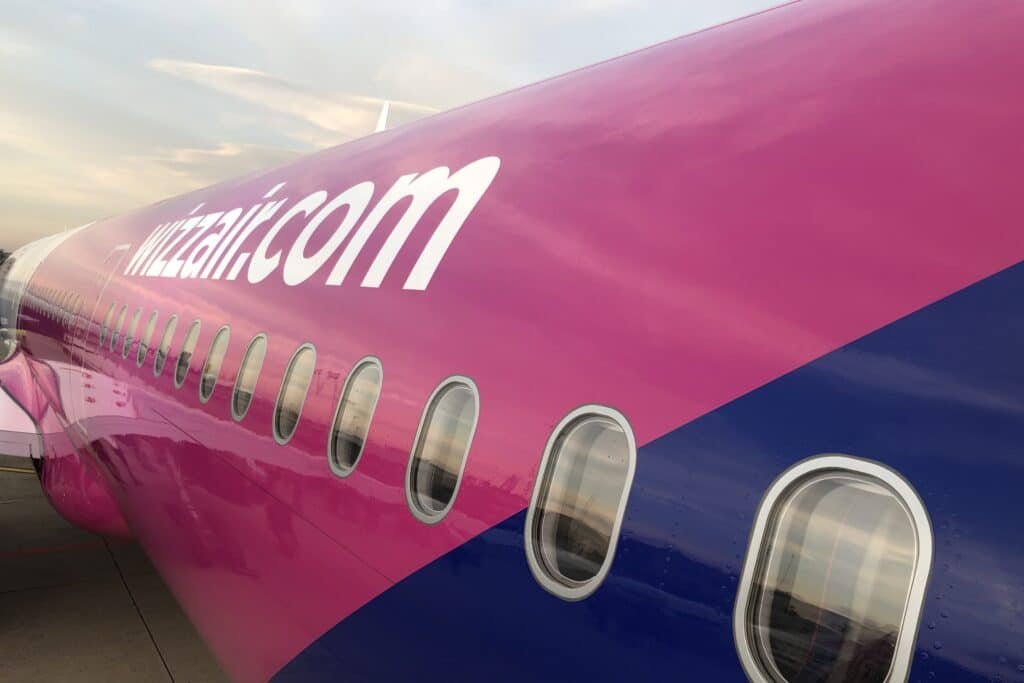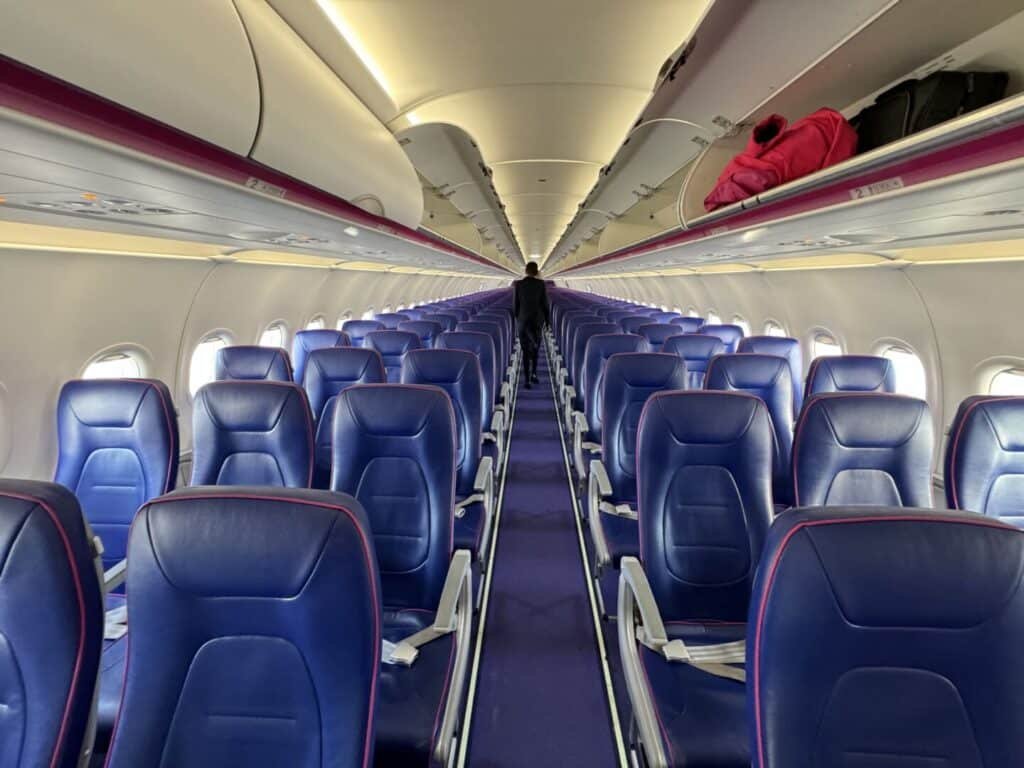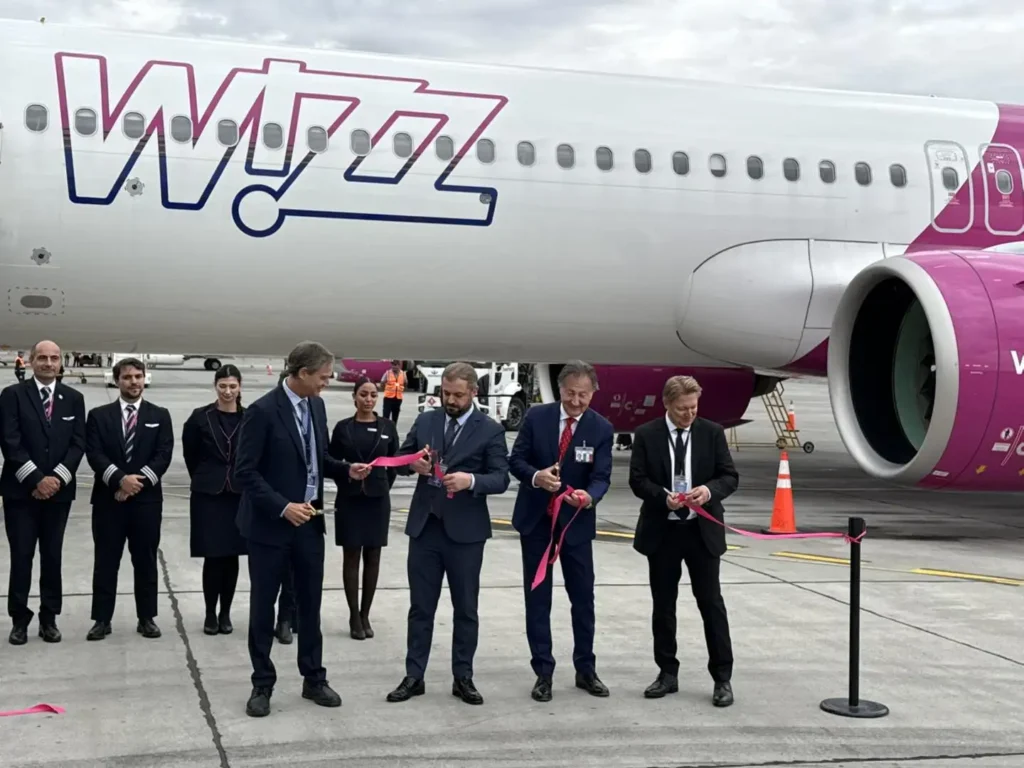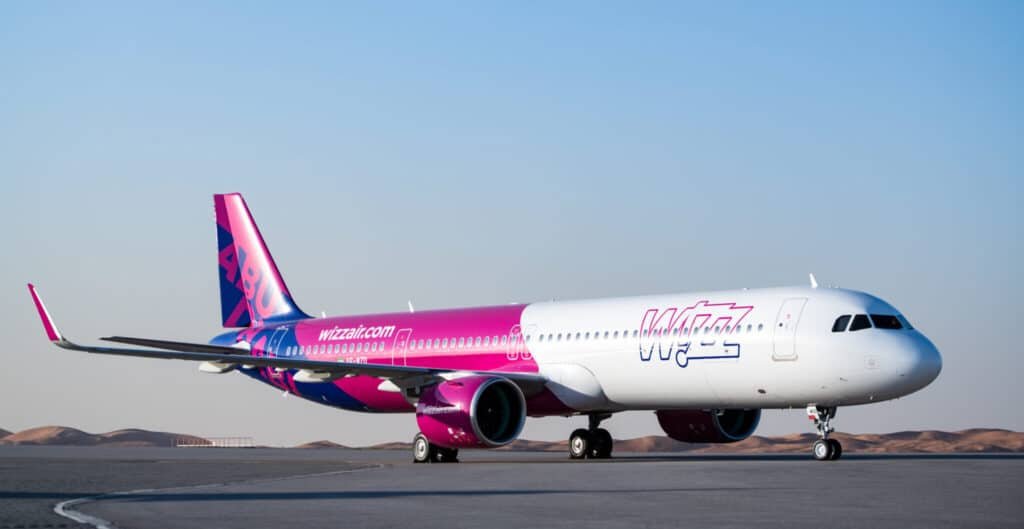After a short hiatus, Wizz Air Abu Dhabi flights are back on the radar — and the return comes with a pleasant surprise for travellers: airfares starting from just Dh312. The ultra-low-cost European carrier has officially reopened bookings for flights to Abu Dhabi, signalling a fresh start for budget-friendly travel between the UAE and Europe.
According to Wizz Air’s website, new services from Katowice and Krakow in Poland will begin from 20 November 2025, marking the airline’s re-entry into the UAE market less than a year after suspending local operations.
A Comeback Few Saw Coming
Earlier this year, Wizz Air Abu Dhabi had announced a full suspension of its UAE operations from 1 September 2025, citing geopolitical uncertainty, regulatory hurdles, and tough competition from regional budget rivals. The joint venture between Wizz Air Holdings and Abu Dhabi’s ADQ officially exited the market as part of a strategic realignment to focus on “core European operations”.
However, the reappearance of Abu Dhabi routes on the carrier’s global website — now operated under Wizz Air Hungary — shows that the airline hasn’t closed the door on the UAE entirely. Instead, it’s repositioning itself as an international entrant rather than a locally based airline.
Key Routes and Launch Dates
Wizz Air has announced four European gateways that will resume direct connections to the UAE capital before the end of 2025:
- Katowice → Abu Dhabi: Starting 20 November 2025
- Krakow → Abu Dhabi: Starting 20 November 2025
- Bucharest → Abu Dhabi: Starting 30 November 2025
- Budapest → Abu Dhabi: Starting 1 December 2025
- Larnaca → Abu Dhabi: Starting 14 December 2025
Introductory fares start at 309 Polish Zloty (Dh312) for one-way tickets, depending on availability and luggage selection.
The move re-establishes Abu Dhabi as an affordable entry point to the Middle East for European travellers — especially for those seeking sunshine breaks and quick connections to Asia.

Why Wizz Air Left — and Why It’s Back
When Wizz Air Abu Dhabi first launched in January 2021, it promised to revolutionise regional air travel with ultra-low-cost pricing. The airline quickly expanded to more than 20 destinations, including routes to Athens, Alexandria, and Yerevan.
But by mid-2025, global pressures — from rising fuel costs to airspace restrictions — forced the carrier to scale back. The geopolitical environment in parts of the Middle East, plus regulatory complexity around UAE-based joint ventures, made the model hard to sustain.
By September, the joint venture had been dissolved, with Wizz Air confirming to the London Stock Exchange that it would refocus on core European hubs while maintaining strategic access to key global destinations.
Now, the airline is returning under its main Hungarian operating certificate — a move that allows it to serve Abu Dhabi without the constraints of a local base, while still offering competitive pricing.
A Statement From the Top
At the time of the exit, Wizz Air CEO József Váradi praised the team behind the UAE venture, calling the experience “a tremendous journey in one of the world’s most dynamic aviation markets.”
In the same statement, he hinted at possible future engagement with the UAE market under different structures:
“We are proud of what we have built in the region. Wizz Air will continue to evaluate opportunities in new and emerging markets as part of its long-term growth strategy.”
That quote, viewed in light of today’s new flight listings, now feels prophetic.
Ultra-Low-Cost Strategy, Familiar Savings
True to its DNA, Wizz Air’s pricing remains aggressive. Promotional one-way fares for Wizz Air Abu Dhabi flights start from Dh312, among the lowest on the Europe-to-Gulf corridor.
Even after taxes and add-ons for luggage or seat selection, total prices remain significantly below competitors such as Pegasus, Flynas, and FlyDubai on comparable routes.
The carrier’s business model focuses on short-haul efficiency and fleet optimisation. By operating through its European AOC (Air Operator’s Certificate), Wizz Air reduces overheads and bypasses regional limitations, passing savings directly to passengers.

Impact on Abu Dhabi’s Tourism and Aviation
Abu Dhabi’s tourism sector is likely to benefit from the return of Wizz Air’s European routes. These flights feed into the capital’s broader strategy to attract more mid-range leisure travellers — a demographic that typically stays longer and spends steadily.
Tourism officials have been working to diversify inbound markets beyond luxury tourism, with Poland, Hungary, and Romania emerging as promising source regions. Wizz Air’s return strengthens those connections and aligns with the city’s goal of reaching 39 million annual visitors by 2030.
At the same time, the airline’s competitive pricing will complement Etihad Airways’ premium positioning, offering a two-tier structure for inbound travel: luxury and low-cost.
What This Means for Travellers
For UAE residents and visitors alike, the return of Wizz Air means more affordable Europe access. A round trip to Poland or Hungary could now cost less than a single premium ticket to London or Paris.
Passengers should note that Wizz Air’s low fares come with typical ultra-budget conditions — paid seat selection, hand-luggage restrictions, and no-frills service. Still, for short-haul routes of five to six hours, it’s a fair trade for savings that can exceed 50 per cent.
The airline’s modern Airbus A321neo fleet also ensures fuel efficiency and a lower carbon footprint, aligning with the UAE’s push for sustainable aviation growth.

Market Context: Competition Heats Up
The low-cost market in the Gulf is growing fast. Carriers such as Air Arabia, FlyDubai, and SalamAir are expanding aggressively, serving dozens of cities across Asia and Europe.
Wizz Air’s renewed entry raises the competitive stakes, offering cheaper European options at a time when regional carriers are focusing eastward.
Travel analysts predict fare wars during the winter 2025–2026 season as airlines jostle for market share. For consumers, this competition is a win — more routes, better connectivity, and greater affordability.
Looking Forward: A Strategic Reset
Wizz Air’s re-entry into the UAE market underlines a wider pattern among European airlines: adapt, retreat, and re-enter smarter.
Rather than maintaining costly regional bases, many carriers are now using flexible cross-border operating models to reach high-demand markets without long-term commitments.
For Wizz Air, Abu Dhabi remains strategically valuable — a gateway to Asia, a leisure destination for Europeans, and a symbol of recovery for ultra-low-cost aviation in a post-pandemic world.
As bookings surge for November, it’s clear the appetite for affordable travel to the UAE has never been stronger.
Flights resume on 20 November 2025, starting with services from Katowice and Krakow in Poland.
One-way fares begin at Dh312, making them among the cheapest Europe–UAE options this winter.
The airline paused operations due to regulatory challenges and strategic restructuring but continues serving Abu Dhabi under its European licence.
Katowice, Krakow, Bucharest, Budapest, and Larnaca are the confirmed routes launching between November and December 2025.



